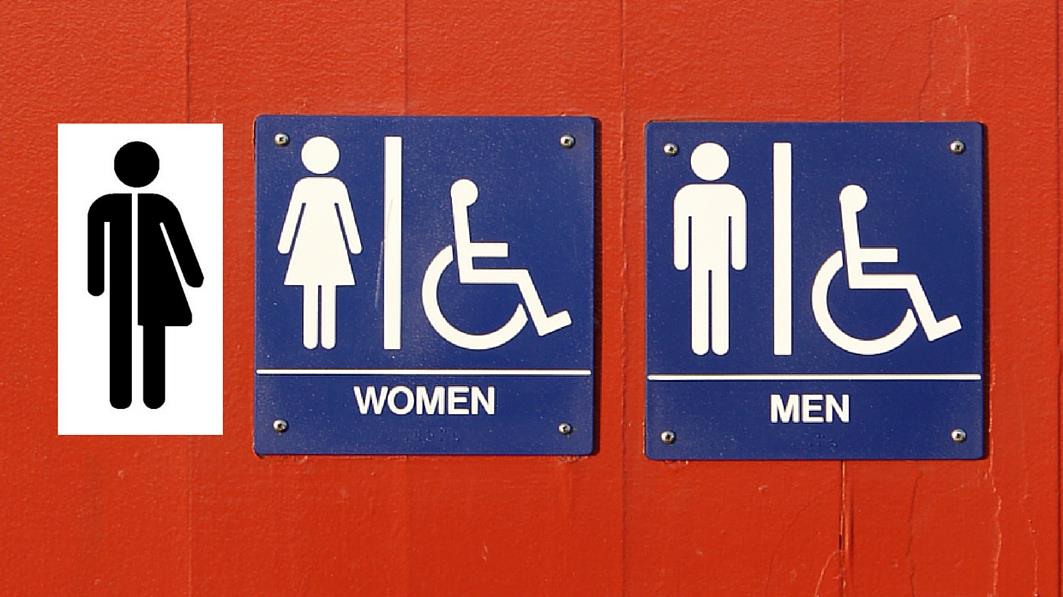Maya Dillard Smith took her two youngest, elementary school-aged daughters into a public women’s restroom in California. When three tall, deep-voiced young men ― dressed as women ― entered the room, her daughters were frightened and confused. They asked questions, which Smith says she was “ill-prepared to answer.”
Since 2011, California has had laws for public accommodations ― including restrooms, locker rooms and dressing rooms ― prohibiting discrimination based on “gender identity and gender-related appearance and behavior.” So the three men had a legal right to use the women’s room.
Still, the encounter was unnerving for Smith and her children, and it got her thinking.
A short while later, in her new position as Director of the Atlanta Chapter of the American Civil Liberties Union (ACLU), Smith began asking questions about the group’s support for adding “gender identity” to non-discrimination laws. In an interview, she explained her questions:
“[A]s there is an effort to advance transgender rights, what are the implications for the rights of women and girls? What are the implications for the rights of parents?” https://www.yahoo.com/news/georgia-aclu-director-resigns-over-032541589.html
In another interview, Smith said:
“And there has been a voice that’s been left out of this entire debate and that’s the voice of woman and girls and what it means to be talking about legitimate public safety. And that isn’t because transgender people in and of themselves are threats. It is because we have sex segregated bathrooms to protect women, to ensure safety, to have some private space to attend to the issues that are germane to women, and there just has not been a safe place to have that conversation or other conversations.”
She added, “Can we not have a healthy dialogue where we are not reduced to name-calling?http://video.foxbusiness.com/v/4926412843001/?#sp=show-clips ”
It’s not often these days that someone from the ACLU aligns with Focus on the Family on a social or political topic. Eventually, Smith resigned her position over the ACLU’s support of special rights based on “gender identity”― at the expense of foundational rights for women, children, parents and people of faith.
It’s Not Just California and Atlanta
Cities and states across the nation have slowly been adding “gender identity” to public accommodations non-discrimination laws; however, many people are just becoming aware of this issue. Take the first half of 2016, when the topic really came to the forefront:
- In February 2016, the city of Charlotte, North Carolina passed an ordinance ― over a great deal of public protest ― allowing people to use the public facilities of whichever “gender” they identified with.
- In March, the North Carolina Legislature overturned the city ordinance, passing HB-2.
- At the instigation of activist groups, a number of businesses protested HB-2, including Target® stores, which announced in April that people could use whichever bathrooms and dressing rooms they wished in their stores.
- This launched a public outcry and a boycott against Target stores.
- Finally, in May, the U.S. Departments of Justice and Education sent a letter to all schools, announcing “sex discrimination” in Title IX now includes “gender identity.” Restrooms and locker roomsin all public schools have to be open to students who believe they are the opposite sex.
- Within weeks, 12 states sued the Obama administration over the directive.
With all these restroom-related news stories, parents across the political spectrum are rightly concerned. We care about religious freedom and free speech, and about how laws privileging “gender identity” affect those freedoms.
We care about our children and are concerned with the ways in which public accommodations laws affect our family’s privacy and safety. The primary concern is not as much about gender-confused individuals as those who might take advantage of the laws to harm others.
That’s why we’ve created this series of online articles to inform and equip you about this significant matter. Keep reading to learn more about:
- Keeping Your Family Safe in Public Restrooms
- What is “Gender Identity”?
- Who Is Included in the “Transgender” Umbrella?
- Do Gender-Identity Laws Affect Me and My Family?
- How Did We Get To this Gender-Confused Place?






